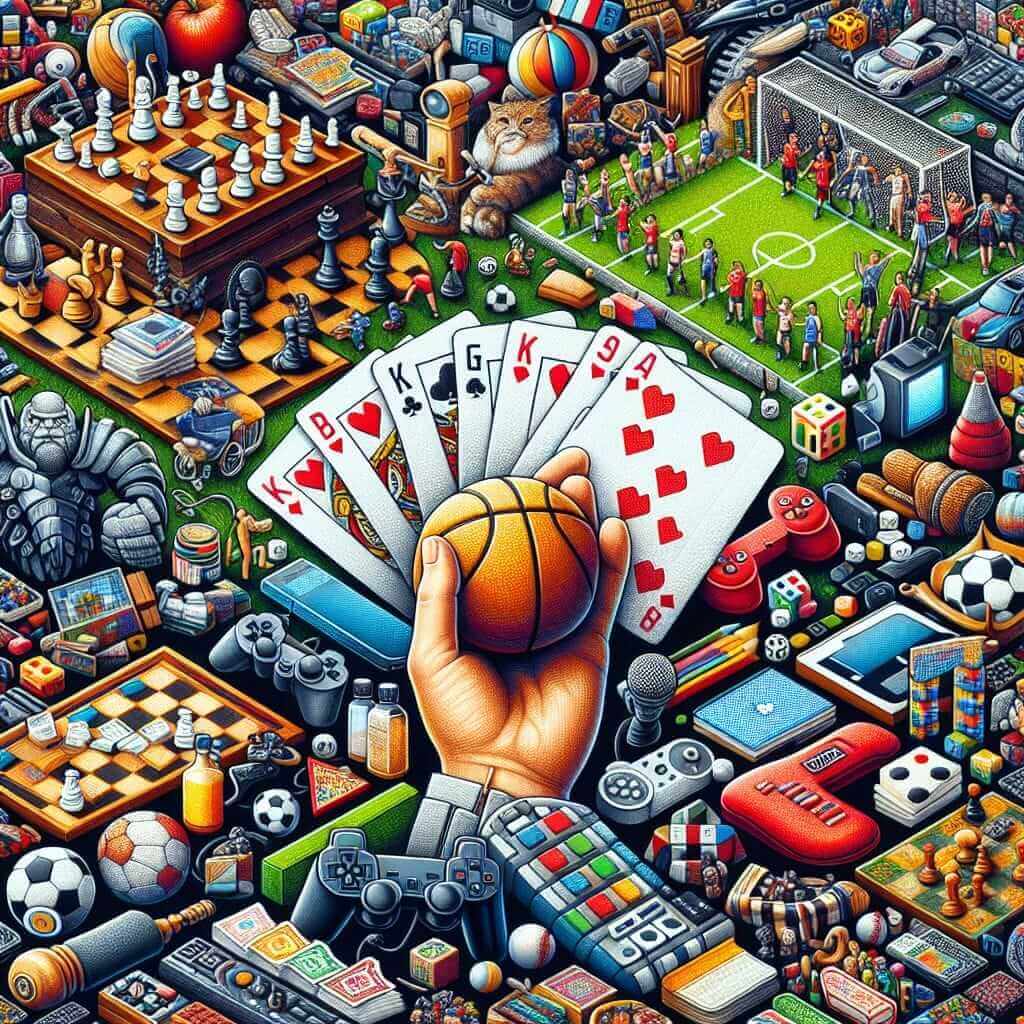As an IELTS teacher, I often get asked about vocabulary enhancement. A common question is: “What are some words for different types of ‘games’?” This is an excellent question because using precise vocabulary can significantly boost your IELTS score, especially in the Writing and Speaking sections.
Why Knowing Different Words for “Games” Matters in IELTS
The IELTS exam assesses your ability to use English in a nuanced and sophisticated manner. Using a variety of vocabulary demonstrates this skill. Instead of repeatedly using the word “game,” you can impress the examiner by employing more specific terms depending on the context.
Exploring a Lexicon of “Games”
Let’s delve into various categories of “games” and their corresponding vocabulary:
1. Games of Skill
- Strategy Games: These require planning and tactical thinking.
- Examples: Chess, Go, Risk
- Puzzle Games: These challenge your problem-solving abilities.
- Examples: Sudoku, Crosswords, Jigsaw puzzles
- Word Games: These test your vocabulary and linguistic prowess.
- Examples: Scrabble, Boggle, Crosswords
2. Games of Chance
- Gambling Games: These involve betting and relying on luck.
- Examples: Poker, Roulette, Blackjack
- Lottery: A game where winners are selected through a random draw.
- Raffle: Similar to a lottery, participants buy tickets for a chance to win a prize.
3. Physical Games
- Sports: Structured, competitive activities often with physical exertion.
- Examples: Football, Basketball, Tennis
- Board Games: Games played on a board with pieces or cards.
- Examples: Monopoly, Scrabble, Clue
- Card Games: Games using a deck of cards.
- Examples: Bridge, Poker, Rummy
4. Video Games
- Role-Playing Games (RPGs): Games where players assume the roles of characters in a fictional setting.
- Examples: The Legend of Zelda, Final Fantasy, Skyrim
- First-Person Shooters (FPS): Games played from the protagonist’s perspective, focusing on combat.
- Examples: Call of Duty, Halo, Counter-Strike
- Simulation Games: Games that mimic real-life activities.
- Examples: The Sims, SimCity, Flight Simulator

Applying Game Vocabulary in IELTS
Writing Task 2: “Some people believe that video games contribute to violence, while others argue that they are a harmless form of entertainment. Discuss both views and give your own opinion.”
- Instead of repeatedly using “video games,” you can say “first-person shooter games” when discussing potential links to violence.
- You could use “simulation games” when highlighting the educational value of certain games.
Speaking Part 2: “Describe a game that you enjoyed playing in your childhood.”
- If you are describing a board game like Monopoly, you can talk about the “strategy involved” and the “excitement of acquiring properties.”
- If you’re discussing a card game like Rummy, you can mention the “element of chance” and the “satisfaction of creating melds.”
Tips for Success
- Context is Key: Use the vocabulary that best suits the specific type of “game” you are referring to.
- Don’t Overdo It: While it’s good to showcase vocabulary, avoid using overly complex words if they feel forced or unnatural.
- Practice Makes Perfect: The more you practice using varied vocabulary, the more confident and fluent you will become.
By expanding your lexicon for “games,” you’ll be well-equipped to express yourself with precision and clarity in the IELTS exam. Remember, using accurate and diverse vocabulary demonstrates your command of the English language, ultimately contributing to a higher score. Good luck!